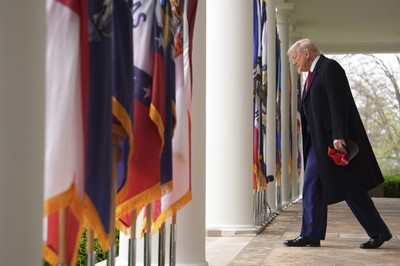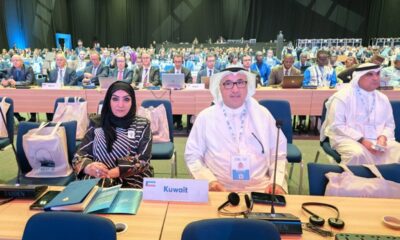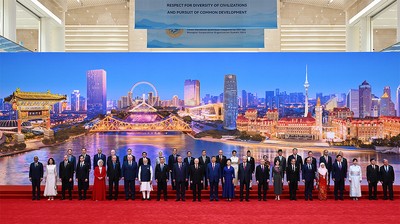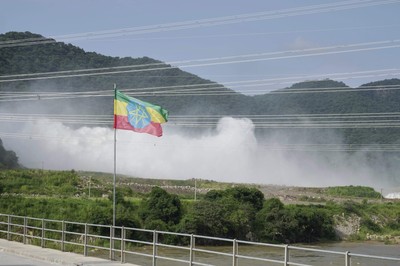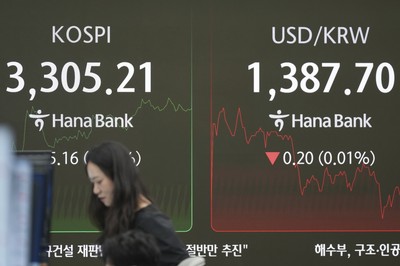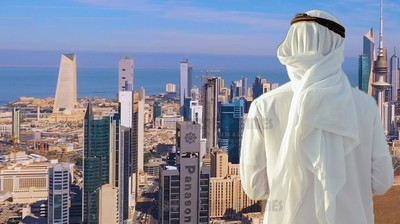A dealer stands near the screens showing the Korea Composite Stock Price Index (KOSPI), (left), and the foreign exchange rate between US dollar and South Korean won at a dealing room of Hana Bank in Seoul, South Korea on Sept 10. (AP)
TOKYO, Sept 10, (AP): Asian shares mostly rose in early Wednesday trading, echoing record rallies on Wall Street after the latest update on the job market bolstered hopes the US Federal Reserve will cut interest rates. Japan’s benchmark Nikkei 225 gained 0.9% to finish at 43,837.67. Australia’s S&P/ASX 200 added 0.3% to 8,830.40.
South Korea’s Kospi jumped 1.7% to 3,314.66. Hong Kong’s Hang Seng rose 1.1% to 26,223.30, while the Shanghai Composite edged up 0.2% to 3,814.63. Uncertainty is still in the air over US-China tariff issues as bilateral talks continue. US President Donald Trump has raised taxes on imports from China, triggering a tit-for-tat tariff war.
The U.S. is currently charging an additional 30% tariff on Chinese goods and China is charging a 10% tariff under a de-escalation deal reached in May. On Wall Street, the S&P 500 rose 0.3% and squeaked past its all-time high set last week. The Dow Jones Industrial Average climbed 196 points, or 0.4%, while the Nasdaq composite gained 0.4%.
They likewise set records. Traders have become convinced that the Federal Reserve will cut its main interest rate for the first time this year at its next meeting in a week, in order to prop up the slowing job market. A report on Tuesday offered the latest signal of weakness, when the US government said its prior count of jobs across the country through March may have been too high by 911,000, or 0.6%.
That was before President Donald Trump shocked the economy and financial markets in April by rolling out tariffs on countries worldwide. The bet on Wall Street is that such data will convince Fed officials that the job market is the bigger problem now for the economy than the threat of inflation worsening because of Trump’s tariffs.
That would push them to cut interest rates, a move that would give the economy a boost but could also send inflation higher. A lot is riding on Wall Street’s hope that the job market is slowing by just the right amount: Investors have already sent US stock prices to records because of it. Inflation also needs to stay at a reasonable level, even though it looks tough to get below the Fed’s target of 2%. In the bond market, the yield on the 10-year Treasury rose to 4.08% from 4.05% late Monday.

 Latest News17 hours ago
Latest News17 hours ago
 Latest News18 hours ago
Latest News18 hours ago
 Latest News15 hours ago
Latest News15 hours ago
 Latest News14 hours ago
Latest News14 hours ago
 Business22 hours ago
Business22 hours ago
 Latest News8 hours ago
Latest News8 hours ago
 Latest News10 hours ago
Latest News10 hours ago
 Politics18 hours ago
Politics18 hours ago
